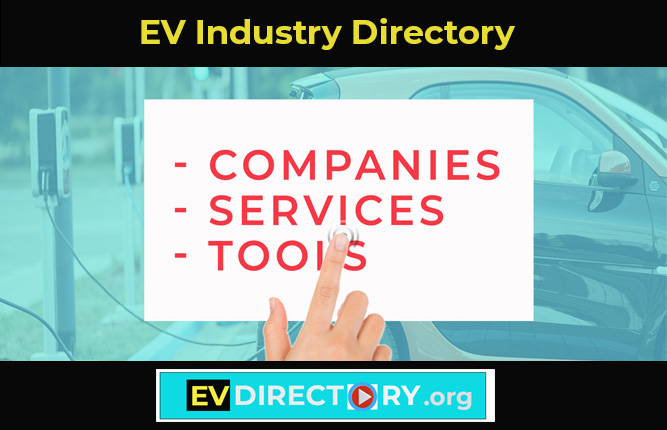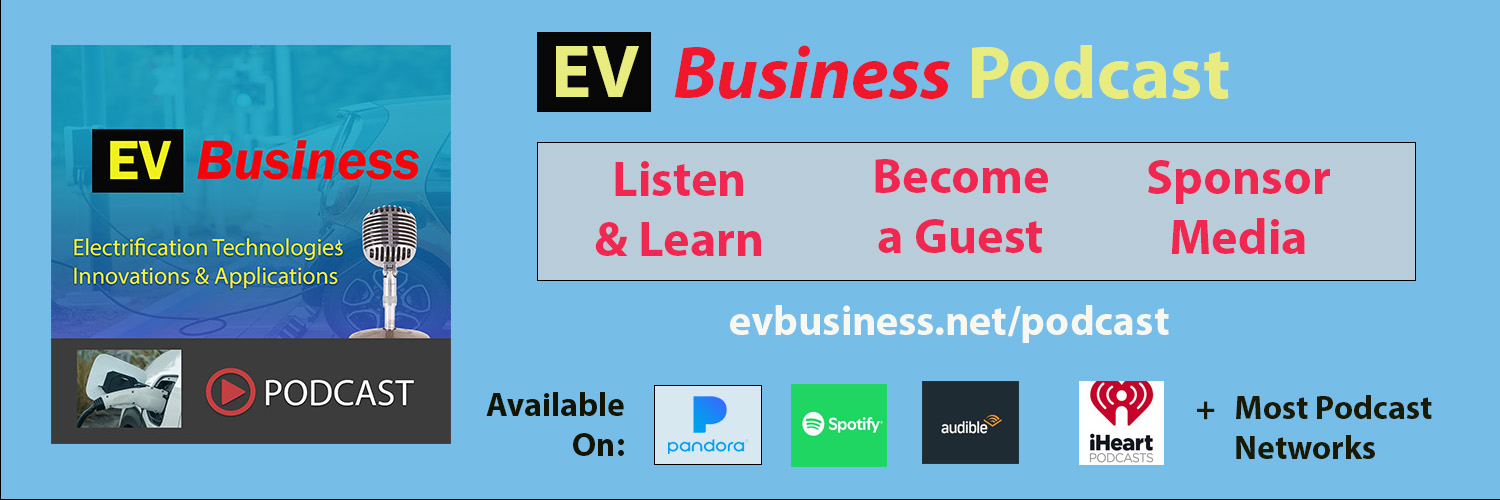EV charging station manufacturers produce equipment that manages electric energy to recharge electric vehicles from Level 1 (slow charging) Level 2 (faster charging) to DC fast chargers (rapid charging). Electric vehicle (EV) charging station manufacturers solve key challenges such as energy management, user convenience, and compatibility with various EV models by offering features like ADA-compliant accessibility, battery storage integration, charge scheduling, and dynamic pricing capabilities. Their products support diverse charging levels, real-time status updates, and seamless connectivity via Wi-Fi, Ethernet, or cellular networks. With custom branding options, fleet management tools, and integration with renewable energy sources, these manufacturers provide adaptable and future-proof solutions. Learning more about EV charging station manufacturers is essential for those seeking innovative, sustainable, and user-focused energy solutions.
Electric Vehicle – EV Charging Station Manufacturers

Electric Vehicle – EV Charger Manufacturer List
- ABB – ABB offers a comprehensive range of EV charging solutions, from AC wallboxes to DC fast charging stations, supporting sustainable mobility worldwide.
- Alfen – Alfen provides smart grid solutions and EV charging equipment, offering a range of charging stations for residential, commercial, and public use.
- Allego – Allego is a leading European provider of charging solutions, offering a comprehensive network of EV charging stations across multiple countries.
- Blink Charging – Blink Charging provides EV charging equipment and networked EV charging services globally, supporting various deployment configurations, including Level 2 and DC fast chargers.
- Bosch Automotive Service Solutions – Bosch provides EV charging solutions, including Level 2 charging stations for residential and commercial use.
- BP Pulse – BP Pulse is a leading provider of electric vehicle charging infrastructure in the UK, offering a wide range of charging solutions for various applications.
- BTCPower – BTCPower designs and manufactures AC and DC fast-charging systems for electric vehicles, serving residential, commercial, and industrial markets.
- ChargePoint – ChargePoint operates one of the world’s largest EV charging networks, offering a comprehensive range of residential and commercial charging solutions.
- ClipperCreek – ClipperCreek specializes in manufacturing robust and reliable EV charging stations for residential, commercial, and public applications in the United States.
- Delta Electronics – Delta Electronics provides energy-efficient EV charging solutions, including AC and DC fast chargers for residential and commercial applications.
- Eaton – Eaton provides EV charging infrastructure solutions, including Level 2 and DC fast chargers, designed for residential, commercial, and industrial applications.
- Enel X – Enel X provides smart EV charging solutions and services, focusing on sustainability and integrating renewable energy sources into the charging infrastructure.
- EVBox – EVBox is a leading global manufacturer of electric vehicle charging stations and charging management software, offering solutions for both residential and commercial use.
- EVgo – EVgo operates one of the largest public fast-charging networks for electric vehicles in the United States, providing convenient and reliable charging solutions.
- Greenlots – Greenlots offers advanced EV charging and energy management solutions, integrating hardware and software to support the growing electric mobility sector.
- Heliox – Heliox specializes in fast-charging solutions for electric buses, trucks, and other heavy-duty vehicles, providing innovative charging infrastructure.
- Ionity – Ionity is a joint venture among major automotive manufacturers, developing and operating a high-power charging network across Europe to facilitate long-distance EV travel.
- Leviton – Leviton manufactures residential and commercial electric vehicle supply equipment (EVSE), offering a range of charging stations and accessories.
- Pod Point – Pod Point is a UK-based provider of electric vehicle charging solutions, offering home, workplace, and public charging stations to support EV adoption.
- Schneider Electric – Schneider Electric offers EV charging solutions for homes and businesses, including smart charging stations that integrate with energy management systems.
- SemaConnect – SemaConnect provides smart electric vehicle charging solutions for commercial properties, multifamily residences, and public use across North America.
- Siemens – Siemens provides a range of EV charging solutions, including Level 2 and DC fast chargers, integrating advanced technology for efficient energy management.
- Star Charge – Star Charge is a leading Chinese manufacturer specializing in the development and production of intelligent charging equipment for electric vehicles.
- Tesla – Tesla designs and manufactures EV charging equipment, including the Supercharger network, providing high-speed charging solutions for Tesla vehicles.
- Tritium – Tritium specializes in the design and manufacture of DC fast charging solutions for electric vehicles, offering compact and robust chargers for various applications.
- Volta Charging – Volta Charging offers EV charging stations with integrated digital advertising screens, providing free charging services supported by advertising revenue.
- Webasto – Webasto offers a variety of EV charging solutions, including home charging stations and commercial charging systems, focusing on user-friendly designs.
Electric Vehicle – EV Charger Key Features and Capabilities
Accessibility User Interface
Features an intuitive display and ADA-compliant design, ensuring the charging station is accessible to all users, including those with disabilities. This is important to promote inclusivity and comply with accessibility regulations.
Battery Storage Integration
Pairs with battery storage systems for peak shaving and backup power, helping reduce energy costs and provide a reliable energy source during outages. This feature enhances energy efficiency and reliability.
Charge Scheduling
Allows users to schedule charging sessions during preferred time periods, such as off-peak hours, to save on electricity costs and optimize grid usage. This is essential for cost savings and energy management.
Charging Levels
Supports a range of charging speeds from Level 1 (120V) to DC fast chargers with high-power outputs, catering to different user needs and EV capabilities. This flexibility ensures compatibility with a wide range of electric vehicles and use cases.
Charging Station Status Indicators
Displays real-time status updates such as availability, in-use, or out-of-service, providing clear and immediate information to users. This is crucial for improving user convenience and reducing wait times.
Connectivity Options
Supports Wi-Fi, Ethernet, and 4G/5G connectivity, enabling seamless network operations and remote access. Connectivity ensures reliable communication for monitoring and management.
Custom Branding Options
Allows businesses or municipalities to customize the appearance of charging stations to reflect their branding. This feature is important for promoting brand identity and enhancing customer engagement.
Customer Support
Includes technical support, warranties, and maintenance plans to ensure a reliable and worry-free user experience. Quality support is critical for user satisfaction and operational continuity.
Data Reporting
Provides real-time data, usage statistics, and energy consumption reports, offering valuable insights for users and operators. Accurate reporting is vital for monitoring performance and optimizing energy use.
Dynamic Pricing Capability
Supports flexible pricing models based on usage, peak hours, or user categories, enabling operators to implement strategic pricing. This adaptability is key for revenue optimization and demand management.
Energy Management
Offers load balancing, energy optimization, and renewable energy integration to improve overall efficiency. This feature is critical for sustainable energy usage and reducing operational costs.
Expansibility
Features a modular design that allows for network expansion and upgrades as needs evolve. This scalability is important for future-proofing and accommodating growing demand.
Fleet Management Features
Provides tools for energy usage tracking and scheduling tailored for managing large EV fleets. These features are essential for improving operational efficiency and cost control for fleet operators.
Integration with Utility Programs
Compatible with utility demand response programs and time-of-use (TOU) rate adjustments, helping users save on energy costs and support grid stability. This feature aligns with energy conservation and smart grid initiatives.
Interoperability
Supports multiple payment systems, roaming agreements, and cross-network access, ensuring broad usability and convenience for EV drivers. Interoperability is key for a seamless charging experience.
Mobile App Control
Enables users to control and monitor charging sessions via a smartphone app, offering convenience and real-time access. This functionality enhances user experience and accessibility.
Plug-and-Charge Capability
Provides automated authentication and billing via Plug-and-Charge (ISO 15118), simplifying the charging process for users. This feature is essential for convenience and user satisfaction.
Remote Diagnostics
Allows for over-the-air firmware updates and remote troubleshooting to minimize downtime. Remote diagnostics are critical for maintaining reliability and reducing maintenance costs.
Remote Monitoring
Offers the ability to access and monitor charging status from connected devices, ensuring users and operators stay informed. This feature is essential for operational oversight and user convenience.
Renewable Energy Integration
Integrates directly with solar panels or other renewable energy sources, enabling green charging solutions. This is important for reducing carbon footprints and promoting sustainability.
Smart Home Integration
Communicates with home energy devices such as solar panels, house battery storage, and other chargers for optimized energy management. This feature is essential for enhancing home energy efficiency.
Standards Compliance
Meets industry standards and certifications such as UL, CE, and ISO, ensuring safety and reliability. Compliance is vital for user trust and regulatory adherence.
Vehicle Compatibility
Compatible with various EV plug types, including CCS, CHAdeMO, and Tesla connectors, ensuring usability across different vehicle models. Compatibility is crucial for attracting a broader user base.
Weather Resistance
Designed for both indoor and outdoor use with weatherproof and vandal-resistant features, ensuring durability in various environments. This is important for long-term reliability and usability.
Electric Vehicle – EV Charger Glossary
Accessibility Design – Refers to features and compliance standards that ensure charging stations are usable by people with disabilities, such as ADA (Americans with Disabilities Act) compliance.
Application Programming Interface (API) – A set of protocols and tools for building and interacting with software applications, enabling integration and communication between systems.
Battery Energy Storage System (BESS) – A technology that stores energy in batteries for use during peak demand or outages, improving energy efficiency and reliability.
Battery Management System (BMS) – Technology that monitors and manages battery performance, ensuring safety, efficiency, and longevity.
Carbon Footprint – The total greenhouse gas emissions caused directly and indirectly by an activity, organization, or product.
Charging Station Management System (CSMS) – Software used to manage and monitor EV charging stations, including user sessions, payments, and diagnostics.
Demand Response (DR) – Programs that allow electricity users to reduce or shift their usage during peak demand periods, typically in exchange for financial incentives.
Direct Current Fast Charger (DCFC) – A high-power charging system that delivers direct current (DC) power for rapid EV charging.
Electric Vehicle (EV) – A vehicle powered by an electric motor and energy stored in a rechargeable battery pack.
Energy Management System (EMS) – Systems that monitor and optimize energy usage, often integrating renewable energy and battery storage.
Interoperability – The ability of a charging station to communicate and operate across multiple networks, software systems, and payment platforms.
Internet of Things (IoT) – A network of interconnected devices that collect and exchange data, enabling smarter operations and monitoring.
Kilowatt Hour (kWh) – A unit of energy measurement used to determine electricity consumption, important in calculating EV charging costs.
Load Balancing – The process of distributing electrical load across chargers to ensure efficiency and avoid overloading the grid.
Over-the-Air (OTA) – Refers to wireless software updates or data transmission, often used for charging station diagnostics and upgrades.
Plug and Charge (PnC) – A feature based on ISO 15118 standards that allows automated authentication and billing when an EV is plugged in.
Renewable Energy Integration (REI) – The incorporation of renewable energy sources, such as solar or wind, into charging station operations.
Smart Grid – An advanced electrical grid infrastructure that enables real-time communication between utilities, EV chargers, and consumers for optimized energy distribution.
State of Charge (SOC) – A measure of the energy level in an EV battery, expressed as a percentage of full charge.
Time-of-Use (TOU) – An energy pricing model that varies based on the time of day, encouraging users to charge during off-peak hours.
Vehicle-to-Grid (V2G) – Technology that allows EVs to return electricity to the grid, enabling energy storage and grid stabilization.
Wireless Application Protocol (WAP) – A standard that enables wireless devices to access network services and applications, often used in EV charging apps.

